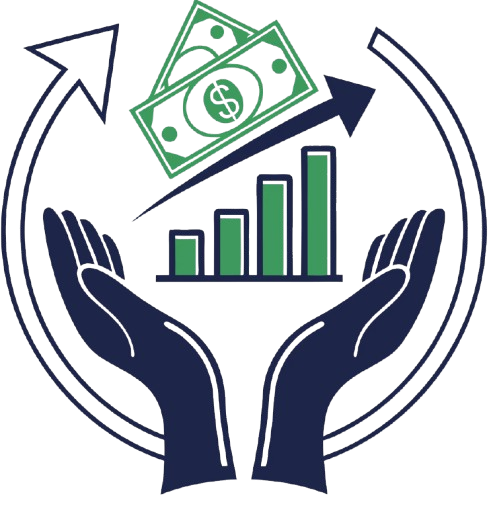Imagine a self-driving car navigating a difficult choice: to swerve and potentially harm the passenger, or to remain on course and strike a group of pedestrians. Who decides? What are the values that inform that choice? Artificial intelligence, or AI, is rapidly infiltrating all sorts of professions. This means we need ethical AI now more than ever. Ethical AI is a framework for the responsible creation and use of AI. Ethical AI guarantees fairness, transparency, and accountability. It ensures the safety and confidence in AI systems.
Defining Ethical AI
Ethical AI: Creating AI systems that are a reflection of us. This is not just about making AI happen, but making it a force for good. We are talking about fairness and respect and doing the right thing.
Key Principles of Ethical AI
Ethical AI relies on several core ideas. These include:
Fairness: AI should be unbiased and equitable, irrespective of the background. So imagine an AI loan application system. It also shouldn’t discriminate against lending based on race or gender.
Transparency: We should be able to see how AI makes decisions. Consider an AI that performs medical diagnoses. Doctors must understand why it arrived at a given conclusion.
Accountability: Who is liable if AI makes an error? Who is responsible when an autonomous vehicle gets into a crash?
Privacy: AI must respect the individual’s privacy and protect their data. A fitness app should never share your health data without your consent.
Beneficence: AI should seek to do good and enhance people’s lives. An outstanding example of the same would be using AI in disaster relief to discover survivors.
Non-Maleficence: Do not harm with AI. The AI-driven security mechanism must not be biased towards any specific group of people.
Ethical AI vs. AI Ethics
“Ethical AI” and “AI ethics” are similar in name, but with a subtle difference between the two. Ethical AI means actual AI systems built ethically. AI ethics is a broad field of study that encompasses all of these topics. It tackles the moral questions and guidance around AI. If you will, AI ethics is the theory, ethical AI is the practice.
The Importance of Ethical AI
So there’s a lot of potential behind AI, but also risks. Ethical AI enables us to boost the payoffs and eliminate the risks. It’s necessary to make sure AI does good.
How to Reduce Bias and Discrimination
AI systems can learn and propagate existing biases by accident. This has the potential to result in biased or discriminatory results. Ethical AI is the key to solving these challenges.
For example, facial recognition technology has a well-documented record of being less accurate for those with darker skin. Testing and correcting such biases is part of ethical AI development.
Maintaining Transparency and Explainability
It’s important to know how AI systems make choices, particularly in high-stakes areas. Consider an artificial intelligence system that denies someone parole. They deserve to know why. Ethical AI uses “explainable A,” or XAI to ensure AI decision-making is comprehensible.
Establishing Trust and Answerability
AI must be trusted in order for people to use it. If an AI makes a bad call, somebody’s gotta be accountable. Ethical AI builds trust through clear rules and consequences. This helps prevent misuse of AI technology.
The Challenges Faced by Ethical AI Implementation
It’s not always easy to put ethical AI into practice. It faces many obstacles in the way.
Data Bias and Quality
AI learns from data. Their AI will, and if that data is biased, so will the AI. One of the big challenges is finding and fixing bias in training data, it needs to happen. How about an AI hiring tool trained on data which predominantly consists of male candidates who applied for tech jobs? The tool could systematically advantage men over women.
Absence of Structured Frameworks
There is no universal set of rules for how AI should be developed ethically. Without any standards as guidance, it’s challenging for organizations to know where to begin. Sometimes companies just have to wing it.
Resource Constraints
In short, it’s hard to do because good AI is time- and resource-intensive, and it’s hard to do because building ethical AI is time- and resource-intensive. For smaller organizations, investing in these resources may be challenging. This takes dedication and a desire to put ethics first.
Guidelines for how to do AI the right way
Interested in learning how to put ethical AI into practice? Here some measures you can adopt:
Building an Ethical AI Framework
Develop an Ethical AI Roadmap for Your Organization This involves:
Defining your values: What are the ethical principles that matter most to you?
Performing risk assessments: What can go wrong with AI?
This Guide Will Help You: Establishing governance: Who is in charge of ethical AI?
Shaping Education and Writing Awareness
Educate employees about ethical AI principles. Ensure a common awareness about the significance of fairness, transparency and accountability.
Creating Mechanisms for Mutual Accountability
Establish clear channels of accountability. THE VEHICLE IS WHILE ON FIRE AND THE TYRES ARE ON FIRE. Create ways that individuals can report and address ethical concerns.
The Future of Ethical AI
The field of ethical AI is always advancing. Here are some things to look out for:
The Role of Regulation
Governments are beginning to take notice of AI ethics. New laws and regulations might also govern how AI is created and deployed. This is one example of the EU AI Act.
Explainable AI (XAI) Research
Research on methods for AI systems to explain their decisions is advancing. Explainable AI (XAI) will provide better insight and confidence into AI.
Conclusion
What Is Ethical AI? Ethical AI is fairness, transparency and accountability in AI systems. This is about limiting bias, establishing trust, and advancing AI for good. The organizations must focus on good ethical AI. This involves coming up with frameworks, training the staff, creating accountability. Ethical AI can give us a future with AI that works for everyone. Ensure AI is a power for justice and equality.

